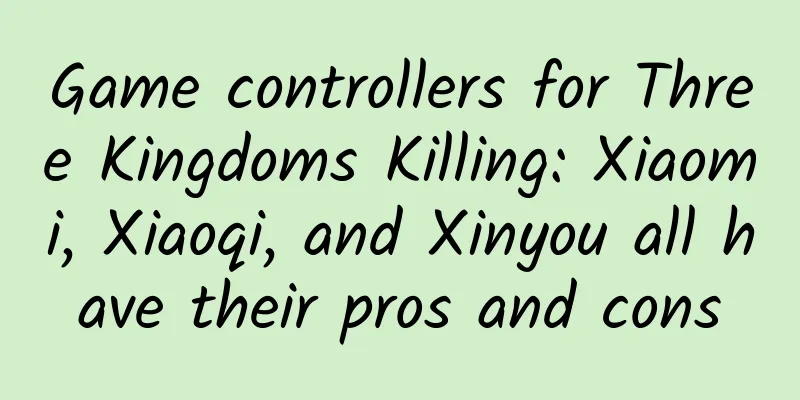Giants keep a close eye on the smart home market. Can they break through by taking a two-pronged approach?

|
"In the future, a home without a smart home system will be like a home without internet access, which is out of fashion." Microsoft founder Bill Gates believes that smart homes will become a normal part of people's daily lives in the future. Under the shadow of giants, it becomes difficult for entrepreneurs and traditional manufacturers to break through or transform in the field of smart home. Hardware modules accelerate development According to Juniper Research data, by 2018, the total size of the smart home market will reach US$71 billion; in 2018, the size of China's smart home market will reach 139.6 billion yuan, accounting for about 32% of the global total. In the face of a trillion-dollar cake, reducing the cost of trial and error, shortening the development cycle, and spending more time and energy on areas that can best experience the core competitiveness of the product have become the common aspirations of Internet entrepreneurs who believe that speed is the only way to succeed. One of the ways Xiaomi has rapidly expanded in the smart home field in recent years is to implant modules. Lei Jun once publicly stated that it only takes a networking module of about 20 yuan to upgrade an ordinary hardware to a smart product. As a competitor, 360 also entered the smart home market through low-priced WiFi chip modules for smart homes. But networking is only part of smart home, which also involves sensors, Bluetooth and other modules. iKair CEO Wang Yongtao believes that "users need to solve demand scenarios, and the corresponding things for the scenarios are sensors rather than networks. The network is just a basic service. Only by integrating these needs can the product be more complete." For this reason, the iKair team developed a sub-brand Maxense for IoT hardware developers and released nine cloud sensors. Currently, developing a smart hardware product requires steps such as function definition, component selection, software development, prototype development, cloud platform development, ID MD design, and mass production. However, the emergence of modules like Maxense will greatly shorten the product development cycle. In addition to providing products for the most important perception and transmission layers in the Internet of Things, Wang Yongtao introduced that Maxense will also provide supporting services at the data application level. "The cloud sensor hardware modules provided by Maxense solve the two problems of accurate collection of environmental data and data transmission to the cloud. Creating data from scratch is only the first step. How to effectively use this data, deliver value to users, and provide manufacturers with the data support needed to form a closed service loop is the key step for networked hardware to truly move towards intelligence." Cloud services enhance soft power As we all know, the premise of intelligent IoT is data. Without data, there is no intelligence. Without any information, no intelligent judgment can be made. In the face of data, the cloud is undoubtedly the best medium. The cloud can accommodate a large amount of data, which is incomparable to the storage capacity of a single device. The data sorting and planning in the cloud can also make users feel that it does not exist and directly enjoy the results it brings. At present, Internet giants such as Tencent, Baidu, JD.com, and Alibaba all provide developers with services such as big data and cloud storage. Their advantage lies in cloud services, and they all hope to establish their own standards and further improve their own ecosystems by obtaining user data. Li Hailei, the founder of AbleCloud, who has served as an architect for Baidu, WeEru, and Xiaomi, has a deep understanding of the cloud rules of smart homes. He said that when developers connect devices to the ecosystem of Alibaba or JD.com, although they can provide cloud platforms and shipping channels to manufacturers for free, this can easily cause smart hardware products to have platform attributes and form a closed model, which is an unreasonable phenomenon. Wang Yongtao also has a deep understanding of the current status of cloud services for smart homes. "After the popularization of cloud computing, you can directly purchase a virtual host from Alibaba Cloud or Microsoft Cloud. Standing on the shoulders of giants, we can focus more on work that truly embodies core values. For smart hardware, IaaS alone (Alibaba Cloud and Microsoft Cloud are both IaaS) is not enough, but the emergence of the AbleCloud smart hardware PaaS platform completes the work of hardware-to-cloud communication, and AbleCloud is more professional. After contact, the two parties hit it off. Maxense uses the full set of PaaS services provided by AbleCloud, and on top of this, develops SaaS services for environmental data application component libraries. AbleCloud is the AWS of the Internet of Things era. It is precisely because of this strategic alliance that Maxense can meet you so quickly." At present, there are more and more third-party cloud platforms that provide cloud services for smart hardware and smart homes. On the one hand, they will provide cloud components for manufacturers, which can be used immediately, such as Maxense cloud sensors; on the other hand, they will also provide development engines, based on which hardware teams can quickly complete development in combination with their own business characteristics. "Unlike the giants, we tend to think from the customer's perspective, truly provide services to manufacturers, help hardware manufacturers make their cloud intelligence better, sell it all over the country and all over the world, and at the same time we will not harvest the success of manufacturers." Li Hailei explained. The Internet has given many manufacturers an opportunity to enter the emerging market, but it has also put pressure on them to become smarter. However, the emergence of products such as Maxense and AbleCloud has made it possible for smart hardware developers, entrepreneurs, and producers to quickly break through in the era of smart home and the Internet of Things. It is foreseeable that the smart home industry chain will become more segmented and diversified in the future, and maturity also means more intense competition in this field. As a winner of Toutiao's Qingyun Plan and Baijiahao's Bai+ Plan, the 2019 Baidu Digital Author of the Year, the Baijiahao's Most Popular Author in the Technology Field, the 2019 Sogou Technology and Culture Author, and the 2021 Baijiahao Quarterly Influential Creator, he has won many awards, including the 2013 Sohu Best Industry Media Person, the 2015 China New Media Entrepreneurship Competition Beijing Third Place, the 2015 Guangmang Experience Award, the 2015 China New Media Entrepreneurship Competition Finals Third Place, and the 2018 Baidu Dynamic Annual Powerful Celebrity. |
<<: Oculus: Facebook's next-generation hookup tool?
>>: Microsoft's high-tech HoloLens: Will it take over AR after VR?
Recommend
How to make Kuaishou’s live streaming GMV exceed 10 million?
In 3 months, the number of simultaneous online us...
If that were the case, Mr. Qiao would definitely be so angry that he would come back to life!
[[143111]] Whether it is to help Apple sell more ...
The film "Never Stop" was nominated for Venice Film Festival. Bai Ke and Miao Miao starred in a realistic inspirational film
On July 28, the 77th Venice International Film Fe...
In-depth analysis of PPC advertising and PPC advertising strategies
Not only do you need to know where you’re going t...
There are thousands of causes of fever, but very limited antimicrobial drugs
Patient: "Pharmacist, my child has a fever o...
iOS 15 turns off personalized ads, no impact on App Store search ads
According to MacRumors, starting with iOS 15 and ...
Yawning is contagious, and it affects both humans and animals. It is a way to calm the brain.
Written by | Skin Proximity Did you yawn when you...
Variety Witch Astrology Standard Course 2019
Variety Witch Astrology Standard Course 2019 Intr...
The higher the cocoa butter concentration, the smoother the chocolate? Don't be fooled
Audit expert: Wang Guoyi Postdoctoral fellow in N...
Air purifiers are just transitional products: Even if the wind is strong, pigs may not fly
The stock market has been booming recently, with ...
Here is a Valentine's Day marketing promotion guide, please check it out!
Show affection and give gifts as they should (the...
Manual translation of the basic principles of CG rendering [HD quality with material]
Manual translation of the basic principles of CG ...
Guizhou researchers discovered an ancient creature 600 million years old. Has "SpongeBob SquarePants" been found?
Science Fiction Network, December 7 (Xu Mingyang)...
Is Guangzhou WeChat mini program suitable for shopping mall live broadcast? What are the benefits?
The live streaming trend is still very popular to...
Why does China need its own space station?
At 14:22 on July 24, 2022, the first experimental...









